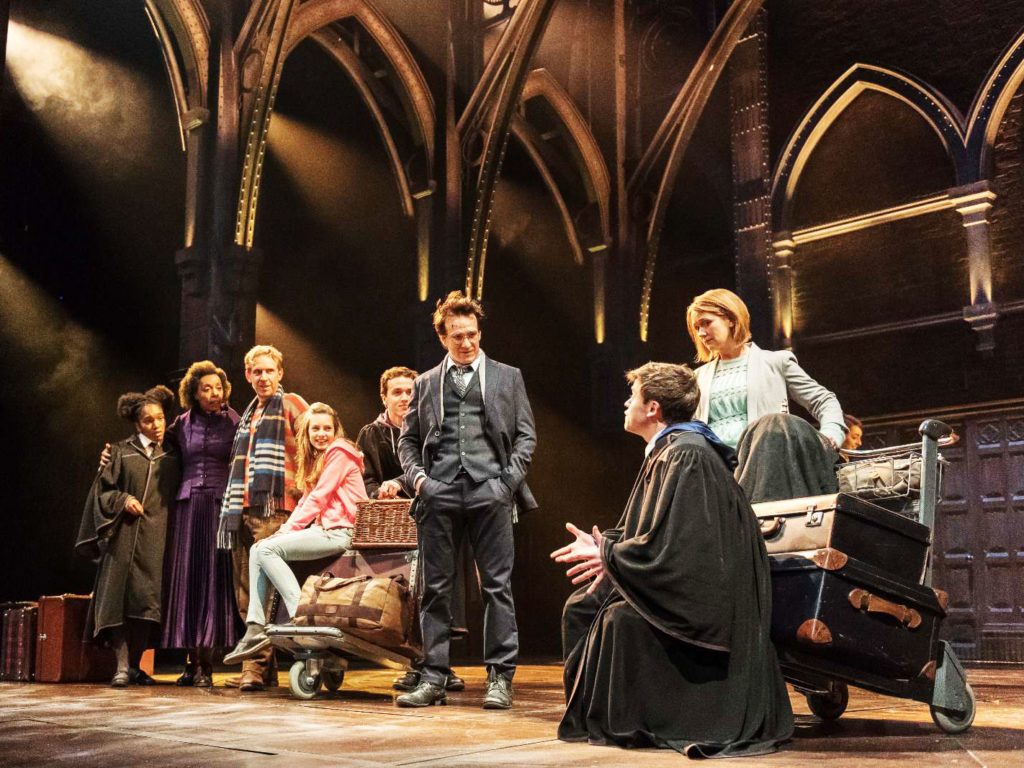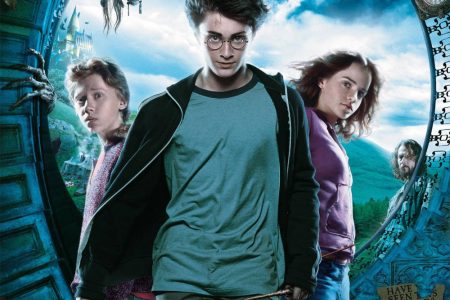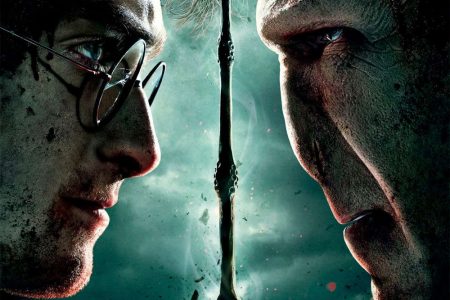The Harry Potter category on this blog is an indication of my love of JK Rowling’s signature series and the world she created. So, when it was announced that there would be an addition to the canon, in the form of a play that was being performed in London, there was no question that I would want to attend. The chance to experience something like that on the big stage, live, was not an opportunity we were going to miss.
The only question that was applicable was: how would my partner and I afford to go? The play is in two parts and seats cost £80 each, so that’s £320 for entertainment – that’s a lot of money. The answer was the Friday Forty – this is the weekly lottery to win the chance to pay only £20 per ticket for seats for both parts. One of the reasons why I’m writing this is to let people know that the Friday Forty works: we are living proof that if you keep at it, you too can win the chance to pay significantly less money for front-row seats. So if you are a Harry Potter fan, keep visiting the website on Friday for 1pm to click on the button to put you in with a chance – we tried continuously for months, and our perseverance paid off. I think that we were at an advantage when it came to selecting seats because we’re Londoners, so could come in on successive nights to see both parts – I guess that people outside of London prefer the Wednesday and Saturday where you can see both parts in one day.
An interesting point to note about doing the two-day version of the play: visiting on the first day is different to the second day. On the night of the first part, we weren’t in a rush to get into the theatre – the play didn’t start until 7.30pm and everyone obviously had ticketed seats – but when we arrived at the theatre around 6.30pm, we noticed that there was a queue forming (the tickets had specified to arrive an hour beforehand to get through the security stuff). Therefore, we decided to join the queue, not realising that it had snaked around the entirety of the theatre, forming a line that reached around three sides. (This did NOT happen on the next night, because everybody knew that it was unnecessary.)
We didn’t have to wait long before it started to move, and within 10 minutes we were having our bags checked at the front and then into the theatre. We had a quick look at the merchandise, knowing that we’d be back the next day, then picked up a programme (£5 for a booklet with a quarter of it made up of ads) before finding the toilets and then our seats. We were right on the front row – great leg room but we couldn’t see the bottom of the back of the stage. We’ve never been that close to the action before.

The stage was set for the start, with luggage on the stage to indicate Kings Cross station, and a hat hanging in mid-air. The atmosphere was exciting – everyone in the audience seemed to be huge Harry Potter fans and were eager for things to start; when the lights went down and it was clear it was about to start, people applauded they were so excited. Just two and a half hours later, which didn’t feel like it, the first half was over and we were left on a cliffhanger. It was a weird sensation to know that we’d be coming back to the same theatre the next night in the same seats to see the rest; it added to the anticipation. We wondered what it would be like for the people who see both halves on the same day on Wednesday and Saturday, having to wait a few hours instead.
The next evening, we knew we wouldn’t have to rush to get in so we had time to relax and so found the shop holding the Minalima exhibition on four floors of higgledy-piggledy beautiful mess; on the ground floor and first floor were new items (a book about collective nouns for animals) while the top two floors were all the Harry Potter stuff. It was lovely to see it all the wonderfully designed material again and wanting to buy it all, obviously, but we had already bought the collected book (signed by the creators) at the previous exhibition before Christmas, so we controlled ourselves and left with our wallets unemptied.
The second night was as wonderful an experience as the first night – the audience loved it, giving the actors a standing ovation (although I confess that we didn’t stand up) for three returns but then the lights came on and the actors didn’t return, so it must be a regular occurrence. We wondered what it must be like to be actors who are getting a standing ovation but knowing it’s not for their performance (the acting was good but not spectacular) but for the Harry Potter-ness of it.
I’m not going to discuss spoilers here (#KeepTheSecret), but I will mention some aspects that impinge on the story, so please feel free to click away if you don’t want to read anything that might affect your enjoyment of the story.
…
…
…
…

If you’re reading this, you’re probably a Harry Potter fan and so know that it is set two decades after the final book, with our trio of heroes all grown up and the focus of the play on Harry and Ginny’s youngest son, Albus, and how he gets on at Hogwarts, and his friendship with Scorpius, son of Draco Malfoy. I won’t provide details of the plot, but if you are a fan of any kind of science fiction and you are told that a Time Turner is involved in this story, then you’ll know exactly the sort of story that unfolds and the opportunities that arise to play with the Potter canon. The resulting storyline adds in a dash of bromance (so popular in films) plus the other Hollywood cliché of father–son issues to complete things.
I’m afraid that, plot-wise, I wasn’t too enamoured of the play because of the pivotal secret, which I won’t reveal. My dislike is based on the fact that I didn’t buy in to the pivotal secret – I found it too implausible based on what had come before, which is a major sticking point. It was fun witnessing the playing around with the old stuff, but it felt a bit too much like fan fiction (the original story for the play comes not from JK Rowling alone, but in partnership with her, John Tiffany and Jack Thorne, with Thorne responsible for the script), and thus not essential to the extant Potter stories.
What I was enamoured with was seeing the magic happening live on stage. The production is fantastic, from the set design to the way they re-create some classic spells in front of your eyes, from wand fights to a polyjuice potion transformation. It was an absolute delight to be transported by into the world of Harry Potter, not by CGI, but by old-fashioned theatrical magic, providing the Potter fan with that feeling of ‘this is real’ which they bring to the books and the films. The main cast were all very good, with perhaps the actor playing Scorpius getting the best of it (and it was strange to be in the front row where we could see the actors spittle flying out of their mouths, and hitting their fellow actors in the face – we would return to see the play again just to see what the play looked like from the circle, for a more encompassing view of the production). But it was everything else that was magical – the supporting cast taking on several roles, or being background people, or helping to make the magic happen on stage; the different sets of places Potter fans know so well; the three-dimensionality of it all. That is the point of this story being a play and why people will keep returning to see it.




